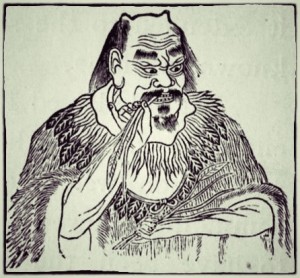Category: Warm, Acrid, Release the Exterior
Taste: Acrid, Bitter, Aromatic Temperature: WarmChannels Entered: Bladder, Kidney
Dosage: 3-9g
Cautions & Contraindications:
- Contraindicated for blood-deficient painful obstruction
Actions & Indications:
- Releases the exterior and disperses cold: for exterior cold patterns with such symptoms as chills, fever, headache, body aches and pains. Most commonly used when accompanied by dampness with joint pain, a general feeling of heaviness, sleepiness, or when there is pain in the occipital region as in Jiu Wei Qiang Hu Tang.
- Unblocks painful obstruction and alleviates pain: for wind-cold-damp painful obstruction, especially in the upper limbs and back, as in Juan Bi Tang.
- Guides qi to the greater yang channel and Governing vessel: to direct other herbs in a prescription to the areas served by these two channels.
Combinations:
- Jing Jie, Fang Feng: occipital headache.
- Chuan Xiong: headache and generalized body aches associated with common cold or bi syndrome.
- Fang Feng: pain due to externally contracted wind-damp.
- Du Huo: wind-dampness at any level.
Formulas:
- Jiu Wei Qiang Hu Tang
- Juan Bi Tang
Notes:
- Qiang Huo has a powerful dispersing quality and can raise and discharge wind, cold, or damp pathogens to the exterior. It is stronger than Fang Feng or Jing Jie for dispersing cold or damp.
- Has an affinity for the occiput. For headaches, or stress or tension headaches affecting the occiput and the back of the neck.
- Has an ascending and dispersing nature.



